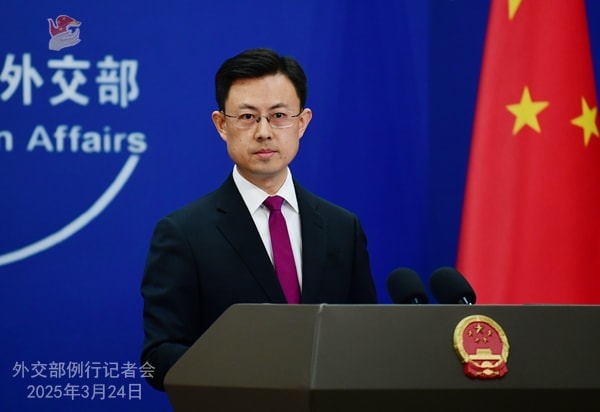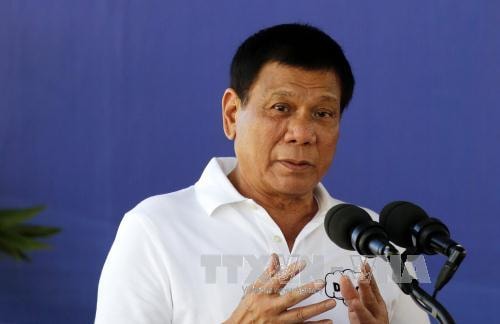China has not received any asylum applications from former Philippine President Rodrigo Duterte and his family.

The above information was given by Chinese Foreign Ministry spokesman Guo Jiakun at a regular press conference on March 24.
A spokesperson for the Chinese Foreign Ministry stressed that Mr. Duterte's trip to Hong Kong (China) was a personal vacation and that the Chinese side "has never received a so-called asylum application sent to the Chinese government from former President Rodrigo Duterte or his family."
The Chinese Foreign Ministry spokesperson also noted that “media outlets should be cautious with information purported to come from ‘sources’, which may be groundless or have ulterior motives.”
Previously, the Philippine Star newspaper reported at noon on March 11 that on the same day, former President of the country, Mr. Rodrigo Duterte, was arrested by the government on charges of crimes against humanity.
According to the Philippines Star, after much speculation about a possible arrest warrant from the International Criminal Court (ICC) for Mr. Duterte, Malacañang (Philippine Presidential Palace) confirmed the news of this arrest.
According to the Philippine Presidential Communications Office (PCO), the International Criminal Police Organization (Interpol) in Manila received an arrest warrant from the ICC on the morning of March 11.
When the plane carrying Mr. Duterte landed at Ninoy Aquino International Airport (NAIA) after a trip from Hong Kong (China), a crowd of police were waiting, along with a lot of attention from the media.
“Upon his return, the Prosecutor General sent the ICC notification of an arrest warrant against the former President for crimes against humanity,” the PCO said.
According to the announcement from PCO, the Philippine National Police (PNP) is the force that executes the arrest warrant with officers equipped with body cameras.
The Presidential Palace assured the public that Mr Duterte and his team are healthy and are being monitored by government doctors.

For his part, according to the Philippines Star, former President Duterte previously expressed his readiness to face arrest by the ICC, even challenging the court to "hurry up" and come to the Philippines before he dies.
Speaking in Hong Kong (China) on March 10, Mr. Duterte declared his readiness to comply if the ICC issued an arrest warrant. He also repeatedly defended his anti-drug campaign, denying that he ordered the police to kill drug suspects unless it was an act of self-defense.
Meanwhile, according to Reuters news agency, Mr. Salvador Panelo, Mr. Duterte's former legal adviser, declared the arrest illegal and criticized the police for not allowing one of Mr. Duterte's lawyers to approach his client at the airport.
On the Philippine government's side, in a statement quoted by Malaysian media on March 15, the Philippine Presidential Office's Undersecretary for Communications, Ms. Claire Castro, said the ICC set the trial of former President Duterte for September 23, allowing him and all parties involved to "fully prepare" for this preliminary hearing, as well as acknowledging "the right to be tried in a timely manner."
Ms. Castro emphasized that this is the time for Mr. Duterte to prepare his defense. If there are witnesses, Mr. Duterte can call them to give any statements or oaths in court.
She said the Philippine government has provided Mr. Duterte with necessary assistance, including medical services and care packages, since his arrest at the Ninoy Aquino International Airport in Pasay City on March 11 until his transfer to the Netherlands, adding that the Philippine government will not cover the travel expenses of witnesses supporting Mr. Duterte.